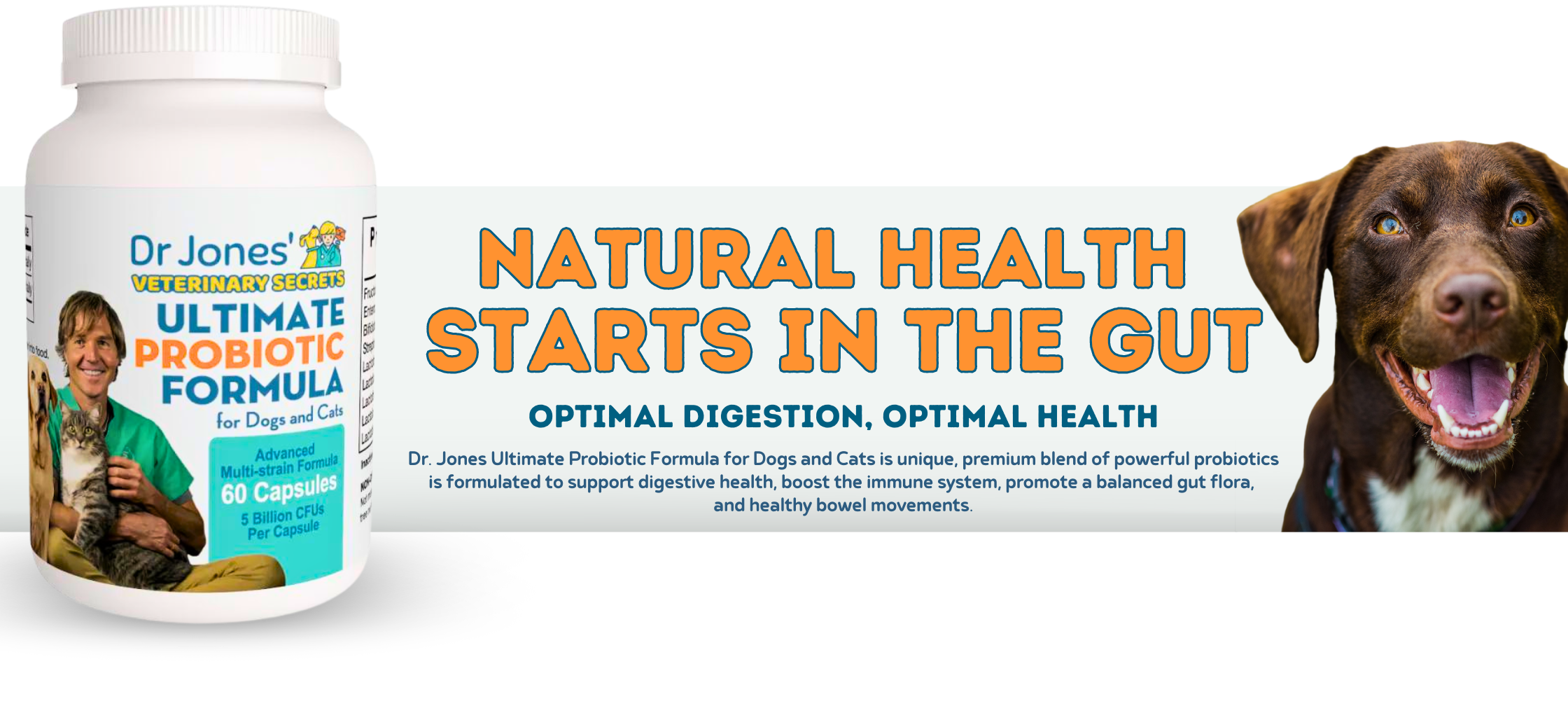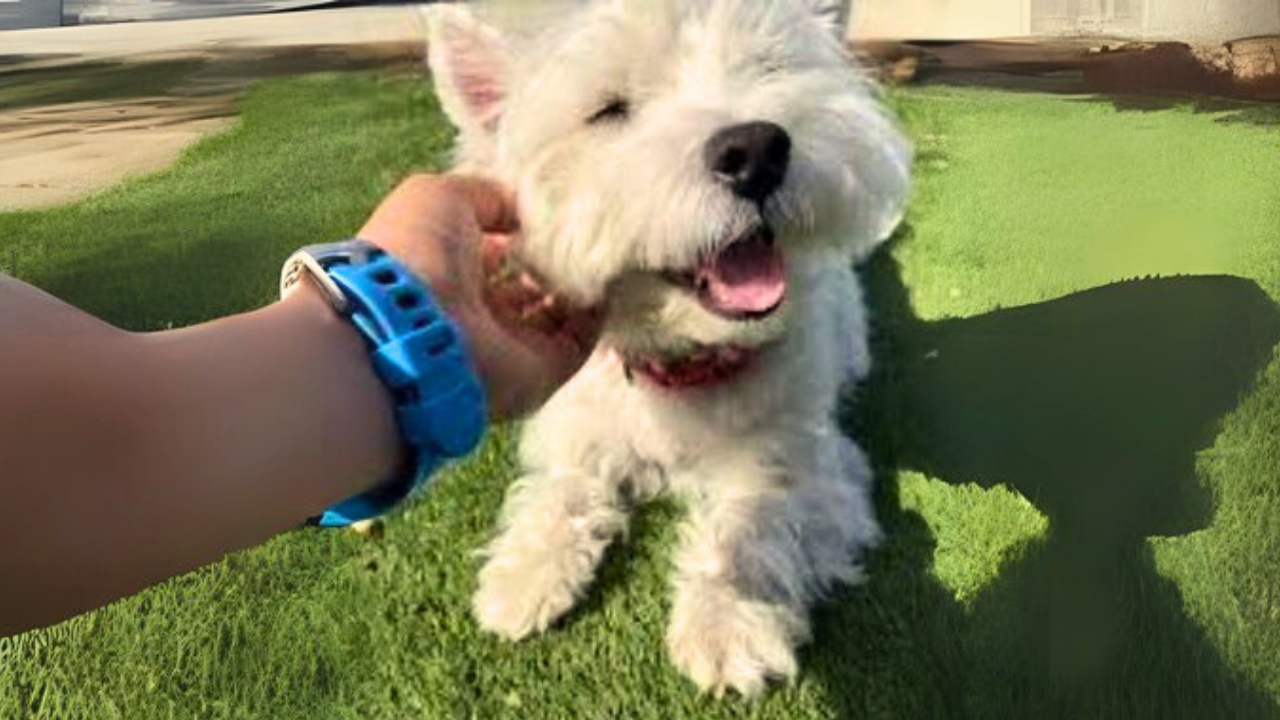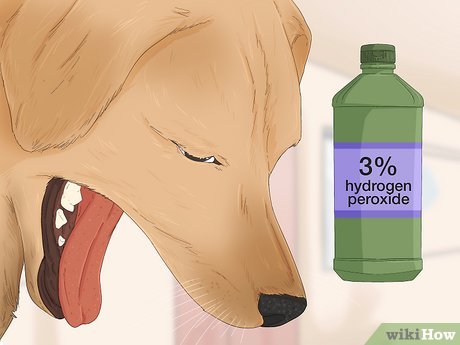Top 10 Human Foods That Are Poison to Dogs and Cats
![]()

Is Your Dog or Cat Eating Something They Shouldn’t? Common Human Foods That Can Harm Pets
Did you know that some common human foods can cause serious harm to your pets? Grapes, for example, can lead to kidney failure, and even small amounts of xylitol—an artificial sweetener found in gum, toothpaste, and other products—can cause a dangerous collapse in dogs, and in some cases, even death.
The Most Common Pet Health Issues from Human Food
Fortunately, the most common problems I see with pets eating human foods are digestive issues like vomiting and diarrhea. These are typically caused by our pets getting into something they shouldn’t have—whether it’s a snack they nabbed off the counter or a bite of something that’s just not meant for them.
How to Help Your Pet Recover
When your pet has digestive issues from eating something they shouldn’t, the solution often involves getting their gut back on track. One of the most effective ways to do this is by using a high-quality probiotic.
I’m excited to introduce you to our NEW Ultimate Probiotic Formula for dogs and cats. This isn’t just any probiotic—it’s a unique, premium blend of 8 animal-specific probiotic strains at high doses of 5 billion CFUs per capsule. This formula is specially designed to:
-
Support digestive health
-
Boost the immune system
-
Promote a balanced gut flora
-
Ensure regular, healthy bowel movements
Whether it’s an upset stomach or just general digestive maintenance, Dr. Jones’ Ultimate Probiotic Formula can help restore balance and keep your pet feeling their best.
Check it out today and give your pet the digestive support they deserve!


The Shocking Everyday Toxins That Can Harm Your Pets
I’ve seen dogs and cats poisoned by virtually everything: rat poison, slug bait, salt, chocolate, grapes, marijuana, compost, mushrooms, drain cleaner, antifreeze—even chewing gum. The list of things that can be toxic to our pets is long and, frankly, shocking. It’s hard to believe how many everyday items can be dangerous to them.
A Cautionary Tale: Bessie’s Close Call
Let me share a story about a small dog named Bessie. She was a lively West Highland White Terrier (Westie) who loved chasing things and had a serious passion for food. One day, Bessie’s owner came home to find that her purse had been “ravaged." As they say in Scotland, a “wee” bit of gum was missing.
Normally, chewing gum wouldn’t raise any alarm bells, but this gum contained xylitol, a common artificial sweetener that is deadly for dogs. Bessie became weak, laid motionless on the floor, and then started seizing. Luckily, her owner acted quickly and brought her to the clinic, where we discovered what she had ingested.
Her blood sugar and potassium levels were dangerously low. We quickly administered IV fluids, dextrose, and potassium. Fortunately, Bessie made a full recovery—but not all dogs are so lucky.
The Big Takeaway: Prevention is Key
This story illustrates just how important it is to be aware of the toxins that could harm your pets. Preventing access to dangerous substances is the best way to keep your furry friend safe.
Common Human Foods That Are Toxic to Dogs and Cats
Avocado
-
Contains persin, which can cause vomiting and diarrhea.
-
The Guatemalan variety is most toxic, but all types pose some risk.
Chocolate (All Forms)
-
Contains theobromine, a cardiac stimulant and diuretic.
-
Toxic dose: 2 baking squares for a 10lb dog. Dark and baker’s chocolate are the most dangerous; milk chocolate is less of a concern.
-
Symptoms: Vomiting, diarrhea, increased heart rate, arrhythmia, seizures, and potentially death.
Coffee (All Forms)
-
Contains xanthines, which affect the nervous system and heart.
Fatty Foods (Gravy, Bacon, etc.)
-
Can trigger severe gastrointestinal upset or pancreatitis, which can be fatal.
Macadamia Nuts
-
Contain an unknown toxin that affects the nervous and muscular systems.
-
Symptoms: Paralysis, weakness, and digestive distress.
Moldy or Spoiled Foods
-
May contain Aflatoxins, which can cause vomiting, diarrhea, tremors, liver damage, and other symptoms.
Onions & Onion Powder
-
Contain thiosulphate, which can cause anemia.
-
Even small amounts of onion can be toxic, but if ingestion stops, recovery is possible.
Raisins & Grapes
-
Can cause acute kidney failure in dogs. The toxic compound is unknown, and unfortunately, there’s no treatment available, so it’s best to avoid them altogether.
Yeast Dough
-
Can expand in the stomach, causing bloating and alcohol toxicity.
Xylitol (Artificial Sweetener in Gum, Candy, etc.)
-
Causes a sudden drop in blood sugar, leading to incoordination, collapse, and seizures.
Fruits with Toxic Seeds & Stems (Apples, Apricots, Cherries, Peaches, Plums)
-
Contain cyanide compounds in their seeds and stems, which can cause difficulty breathing, shock, and other severe symptoms.
Potato Peelings & Green Potatoes
-
Contain solanine, which can cause drooling, vomiting, diarrhea, weakness, and confusion.
Nutmeg
-
High doses can be fatal and cause tremors, seizures, and nervous system abnormalities.
Tomato Leaves & Stems
-
Contain solanine, which can affect the gastrointestinal and central nervous systems.
Lilies (for Cat Owners)
-
All parts of the lily plant are highly toxic to cats, even the water in a vase. It can lead to acute kidney failure. If you have cats, NEVER keep lilies in your home.
What to Do if Your Pet Ingests a Toxic Food
1. Get to Your Veterinarian Immediately
-
If you suspect poisoning, get to your vet as quickly as possible. Some toxins act fast—antifreeze poisoning must be treated within 4–6 hours to prevent irreversible kidney damage.
2. Purge the Poison (Induce Vomiting)
-
In many cases, inducing vomiting is essential to remove the toxin. However, NEVER induce vomiting if your pet has ingested something caustic (e.g., drain cleaner, bleach).
-
How to Induce Vomiting: Give 1 teaspoon of 3% hydrogen peroxide per 10 lbs of body weight. If no vomiting occurs after 10 minutes, repeat once. Do not administer more than two doses.
3. Delay Absorption with Activated Charcoal
-
Available at most pharmacies, activated charcoal binds toxins and reduces absorption. This is particularly useful for dogs who like to eat “garbage" or if the toxin ingested is unknown.
4. Prevention is the Best Medicine
-
Always keep medications and household toxins out of reach. Familiarize yourself with toxic plants (you can find a full list at the ASPCA’s Toxic Plant Database). Secure compost bins and trash cans to prevent accidental ingestion.
Heal Your Pet at Home
Preventing toxic ingestion and being prepared for emergencies are just part of responsible pet care. In addition to protecting them from everyday toxins, it’s also important to be ready to support your pet’s digestive health if they’re feeling off.
One way to support their overall well-being is through a probiotic. Dr. Jones’ Ultimate Probiotic Formula for dogs and cats is a multi-strain, high CFU supplement designed to aid digestion and support a healthy gut. It’s a great choice, especially in cases where your pet is dealing with vomiting, diarrhea, or general digestive distress. It’s animal-specific and encapsulated, so it isn’t broken down too quickly in the stomach.
P.S. Having 3% hydrogen peroxide on hand is a good idea for any pet owner—it’s a simple and effective way to handle many toxic ingestions.












Is giving my dog turkey or chicken bacon ok? Also apple I give them little bits!
No, it’s best to avoid turkey or chicken bacon. Even though they’re poultry, these “bacons” are highly processed, loaded with salt, fat, preservatives, and nitrates, which can upset digestion or even lead to pancreatitis
. A tiny bite (small piece only once in a while) likely won’t hurt, but it shouldn’t become a regular treat .
On the other hand, small bits of apple (without seeds or core) are perfectly safe and healthy—dogs can enjoy them as crunchy, low-calorie treats. Stick with wholesome snacks like plain cooked turkey or chicken, carrots, green beans, or apple slices for safer and healthier options.
For a cat do you recommend gentle giants canned cat food??? Seen ur list. This brand wasn’t on there so we wanted to ask you. Thanks.